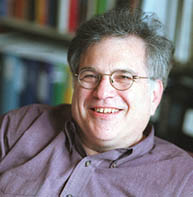Headliners: From steel magnolias to the sweet sound of Crow
Headliners: From steel magnolias to the sweet sound of Crow McGill University
User Tools (skip):
HEADLINERS
From steel magnolias to the sweet sound of Crow
Girl power
Mina Douglas was the first woman to receive a diploma from McGill, receiving her Senior School Certificate in 1877. Just 130 years later, women make up roughly 60 percent of the undergraduate population at McGill–a stat that is consistent in universities across Canada. In a Montreal Gazette article about the ever-growing number of women university students, Morton Mendleson, Deputy Provost, Student Life and Learning, said that there are no plans to change McGill's "gender blind" admission policy that selects the best students regardless of sex. Mendleson did suggest that the ever-changing demographics within certain faculties could have reprecussions down the line, noting that increasing numbers of women in medicine could result in a shortage of specialists in traditionally male-dominated fields like surgery and urology.
Building a greener world
In an interview with the Edmonton Journal, School of Architecture prof and affordable housing guru Avi Friedman talked about his new book Sustainable Residential Development: Planning and Design for Green Neighbourhoods (McGraw Hill). He says the book came about because developers and planners kept asking him how to build a sustainable community. Friedman, who gained considerable attention in the 1990s when he led McGill architecture students in building the revolutionary Grow Home (a 1,000-square-foot townhouse that sold for a modest $60,000), said the harsh environmental realities of the 21st century dictate that communities must place a premium on sustainability. "I believe we were born to live in communities that are sustainable, where we can walk to shop, walk to transportation," said Friedman, a man who himself buses into work every day from NDG.
Casting an eye down south
The opinion of history prof Gil Troy has been sought on a variety of topics of late. First, in an article on Bloomberg.com, Troy called first lady Laura Bush "a steel magnolia," who will be remembered for "soothing the country and anchoring the president" during the tumultuous times bookended by 9/11 and the war in Iraq. Staying with US politics, Troy cropped up again in the Chicago Tribune, this time discussing the delicate issue of presidential candidates using their children in their political campaigns. While children can help candidates exude a certain warmth and wholesomeness, the risk, says Troy, is that candidates can come off looking like they are "exploiting them like a circus act." Ironically, contends Troy, the "demands we make on our president are such that it's almost impossible to be a normal or good parent."
Something to Crow about
The Montreal Gazette recently profiled music professor Jonathan Crow who, despite playing Tchaikovsky's Violin Concerto in concert for legendary conductor Yehudi Menuhin at the tender age of 20, said he only practiced "two or maybe three hours a day." Proving that quality trumps quantity in terms of practice time, the well-balanced, easygoing Crow went on to become the concertmaster of the Montreal Symphony Orchestra at the age of 25–the youngest ever concertmaster in North America–before signing on at McGill in 2005.
Gambling with kids' futures

Derevensky: Poker's no child play.
Owen Egan
Some parents are rolling the dice with their children's well-being by encouraging them to play poker, said Jeffrey Derevensky, Co-director of McGill's International Centre for Youth Gambling Problems & High Risk Behaviour in an interview with the Halifax Herald. Attending a responsible gaming conference in Halifax recently, Derevensky said that some parents have no problems with their children who gamble because "if they are playing Texas Hold 'Em in the basement, they're not going out drinking or doing drugs." Although many young gamblers amass large debts, Derevensky believes the damage goes beyond finances. "When you are spending 20 and 30 hours a week either playing or watching poker, how can you be socializing or doing school work?" he asked. "Eventually, those kids end up dropping out of school."

